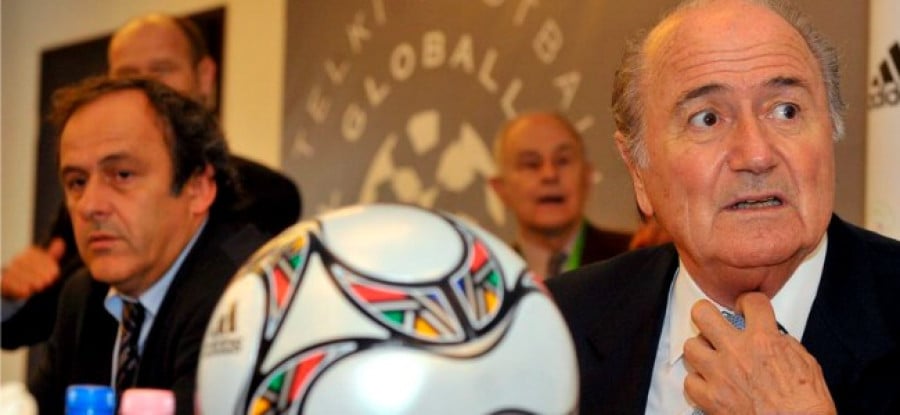How will Blatter and Platini challenge the decision of the FIFA Ethics Committee?

This article examines what may happen next in the Blatter and Platini case. Both men have publically announced their intention to challenge the decision of the FIFA Ethics Committee.1 Below we explore their rights of appeal to the FIFA Appeals Committee and the Court of Arbitration for Sport, together with other potential actions they may choose to pursue.
Background
Following a hearing in Zurich on 18 December 2015, by a decision announced on 21 December 2015, the adjudicatory chamber of the FIFA Ethics Committee (chaired by Mr Hans-Joachim Eckert):
- Banned Joseph S. Blatter and Michel Platini from all football related activities for a period of eight years;
- Fined Mr Blatter the sum of CHF 50,000; and
- Fined Mr Platini the sum of CHF 80,000.2
These disciplinary sanctions arose out of an investigation into a payment of CHF 2 million (c. £1.35 million), which had been transferred from FIFA to Mr Platini in February 2011 (“the Contested Payment”). The key conclusions of the adjudicatory chamber may be summarised as follows:
- The Contested Payment had no legal basis in the written agreement signed by Messrs Blatter and Platini on 25 August 1999;
- The assertion that the Contested Payment was made pursuant to an oral agreement (for the provision of services) was rejected;
- There was insufficient evidence to establish, to the extent required, that the Contested Payment was made or received in furtherance of the execution or omission (by Mr Platini) of an “official act” within the meaning of article 21, paragraph 1 of the FIFA Code of Ethics3 (Bribery and corruption);
- However, the parties’ conduct constituted a breach of article 20, paragraph 1 of the FIFA Code of Ethics (accepting gifts and other benefits);
- The parties found themselves in a situation of conflict of interest, despite which they continued to perform their related duties;
- The parties failed to disclose this situation and the existence of personal interests linked to their prospective activities, in violation of article 19, paragraphs 1, 2 and 3 of the FIFA Code of Ethics (Conflicts of interest);
- The parties failed to place FIFA’s interests first and abstain from doing anything which could be contrary to FIFA’s interests, thereby violating their fiduciary duty to FIFA and breaching article 15 of the FIFA Code of Ethics (Loyalty). In addition, Mr Platini failed to act with complete credibility and integrity, showing unawareness of the importance of his duties and concomitant obligations and responsibilities;
- The parties did not show commitment to an ethical attitude, failing to respect all applicable laws and regulations as well as FIFA’s regulatory framework to the extent applicable to them and demonstrating an abusive execution of their respective positions as high-ranking FIFA officials, thereby violating article 13 of the FIFA Code of Ethics (General rules of conduct).
To continue reading or watching login or register here
Already a member? Sign in
Get access to all of the expert analysis and commentary at LawInSport including articles, webinars, conference videos and podcast transcripts. Find out more here.
- Tags: Anti-Corruption | Court of Arbitration for Sport (CAS) | FIFA | FIFA Appeal Committee | FIFA Code of Ethics | FIFA Disciplinary Code | FiFA Ethics Committee | FIFA Statutes | Football | Governance | Regulation
Related Articles
- Corruption in sport - why a global problem requires a global solution
- After FIFA/IAAF corruption – it is time for institutional change
- Can Switzerland’s new “Lex FIFA” combat corruption within international sports federations?
- Top 25 sports law articles of 2015
Written by
Andrew Smith
Andrew is a barrister practising from 11KBW in London. He is ranked as a leading sports and employment law barrister by Chambers & Partners and Legal 500.




